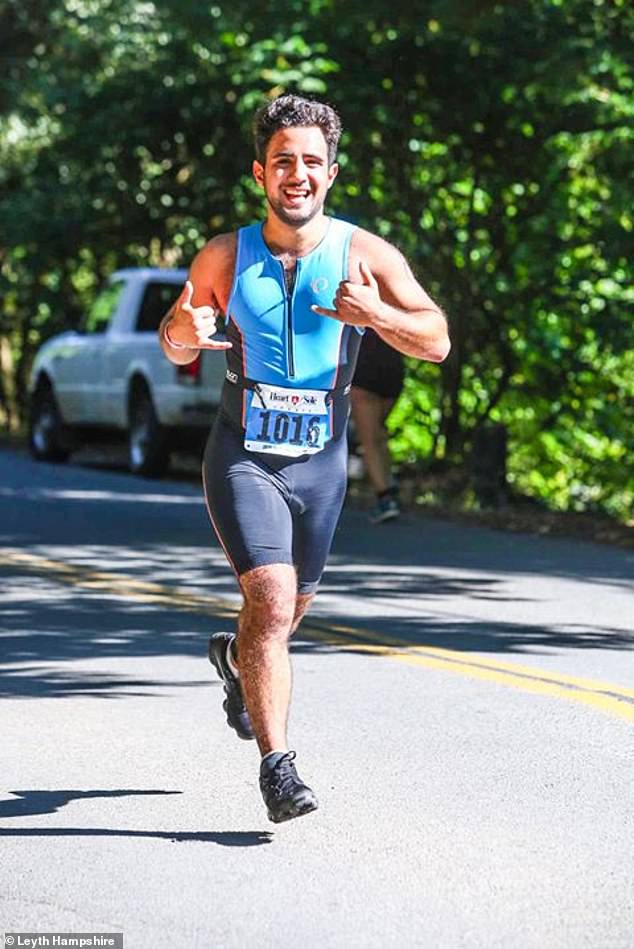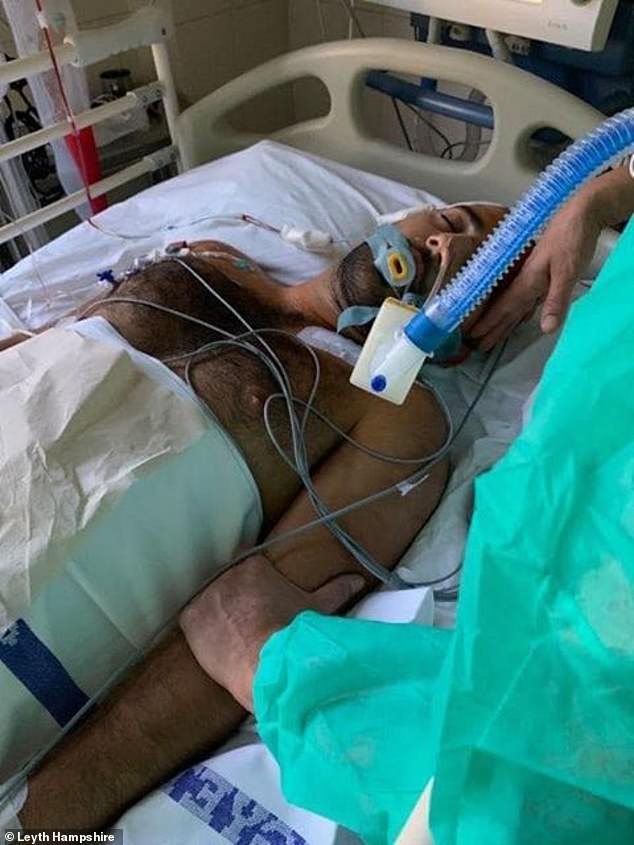British graduate was saved by a Hungarian neurosurgeon in Budapest

Leyth Hampshire, a 23-year-old graduate, says he is “lucky to be alive” after he was in a coma for eight days. Leyth suffered from a rare illness that caused brain haemorrhage and almost took his life. His Hungarian doctors said that they had never seen this illness in such a young and healthy patient before – Dailymail reported.
Leyth Hampshire from South London followed a healthy lifestyle. He was vegan, practised yoga spent a lot of time climbing, and he even competed in triathlons. He travelled to Budapest because of his new job in the EU’s climate change sector. He attended a networking event in Budapest when his life almost ended. Leyth said that he was talking to his colleagues when he told them he needed to use the restroom. When Leyth attempted to turn around and head for the lavatory, he then suddenly collapsed and started having a fit on the floor.

Photo: instagram.com/lifeofleyth/
He was immediately taken into a Hungarian hospital in the capital. When he arrived at the hospital he was on the brink of death. His colleagues thought it was an asthma attack or an epileptic fit. The Hungarian doctors soon found out that Leyth had suffered a grade-5 aneurysm. This means that an artery in his brain burst open, causing a severe stroke. 80% of the people who suffer aneurysm do not manage to wake up, and it could cause brain damage in the victim.
Mr Hampshire was in a coma for eight days and had to be put on machines in order to help keep him alive. Every hour his body struggled to keep his brain from shutting down. Leyth was fed through a tube in his throat and had many wires attached to his body, even some equipment monitoring his brain. “When I woke up, I was very disorientated […] was strapped to my hospital bed so I couldn’t move as I had three implants in my brain doing tests. Doctors were worried that when I woke up, I would become anxious and rip the wires out.”
“I was actually given a sedative to make me fall back asleep because I was so anxious.”
Leyth was operated on four times and his mother – who flew to Budapest immediately – had to sign papers because the procedures were so risky. The second operation actually failed. Leyth was very fortunate though, as one the world’s best neurosurgeons is Hungarian and was at the same hospital in Budapest the day Mr Hampshire was admitted, so he was able to perform a life-saving operation on Leyth. They inserted a 4cm tube inside his brain to take the place of the ruptured artery.

Photo: instagram.com/lifeofleyth/
“Maybe 2 hours earlier if I had collapsed in the shower or travelling on a train, I would be dead” – Leyth said. “Before the accident, I got the train through Paris and Munich and arrived in Budapest. I usually fly but getting the train turned out to be a decision that saved my life. If I got a plane, the pressure would have ruptured the artery, and I would have never woken up. I feel very lucky.”
Mr Hampshire lost all feeling on his right side and was also unable to walk because of the stroke. He had to go to physiotherapy, but two months later, Leyth managed to get from barely able to walk a few steps to an almost full recovery. His therapist noted that he had never seen such a fast recovery before. One factor to his rapid healing could be his unusually young age to suffer an aneurysm. This usually happens to patients between their 40s and 50s so his young and particularly healthy body could have been the key to such an incredibly short healing process.
“It was not a reality in my head that I would not walk again” – Leyth added.
The accident changed Leyth’s outlook on life. He admitted that previously his prestige at the workplace and his salary mattered a lot. Now he wants to focus on the more important things in life. His health and nutrition and to be able to help others preserve their health.
“I want to focus on brainpower and the human body. Getting myself back to full recovery and competing again – I want to learn about the brain and body, and I want to help others who want to achieve those things. Everything happens for a reason. It was a horrible, horrible experience for everyone involved, but because of my new outlook on life, I am so glad and so lucky and so happy.”
Unfortunately, not every story in Hungarian hospitals have a happy ending. In this article, we write about how a Thai woman willingly ended her pregnancy in a hospital in Budapest. But to not finish the article with such a piece of bad news, in our other article you can read about Hungary’s children vaccination being the best in the European Union.
Source: Dailymail





